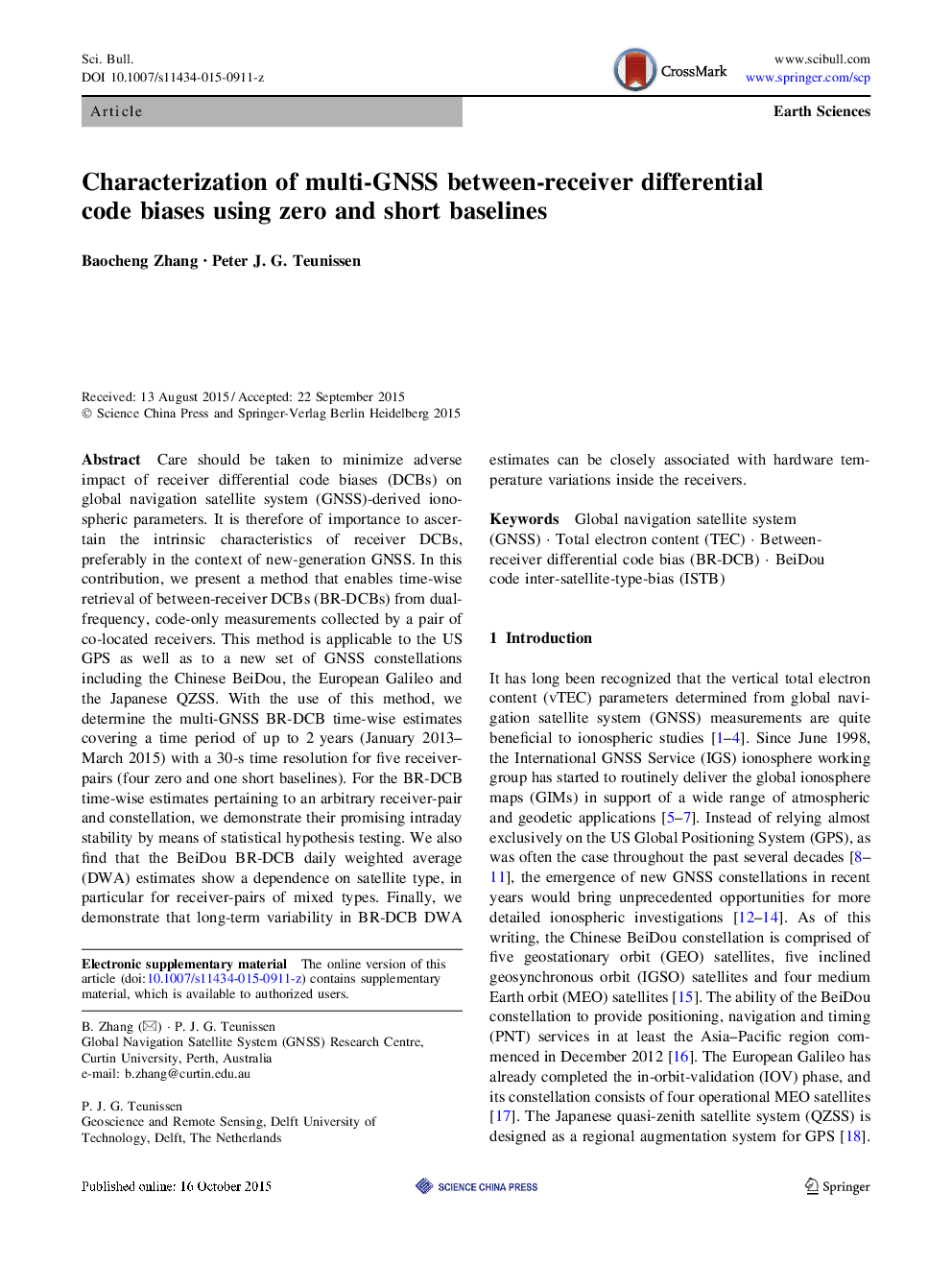| کد مقاله | کد نشریه | سال انتشار | مقاله انگلیسی | نسخه تمام متن |
|---|---|---|---|---|
| 5789116 | 1414295 | 2015 | 10 صفحه PDF | دانلود رایگان |
عنوان انگلیسی مقاله ISI
Characterization of multi-GNSS between-receiver differential code biases using zero and short baselines
دانلود مقاله + سفارش ترجمه
دانلود مقاله ISI انگلیسی
رایگان برای ایرانیان
کلمات کلیدی
موضوعات مرتبط
مهندسی و علوم پایه
شیمی
شیمی (عمومی)
پیش نمایش صفحه اول مقاله

چکیده انگلیسی
Care should be taken to minimize adverse impact of receiver differential code biases (DCBs) on global navigation satellite system (GNSS)-derived ionospheric parameters. It is therefore of importance to ascertain the intrinsic characteristics of receiver DCBs, preferably in the context of new-generation GNSS. In this contribution, we present a method that enables time-wise retrieval of between-receiver DCBs (BR-DCBs) from dual-frequency, code-only measurements collected by a pair of co-located receivers. This method is applicable to the US GPS as well as to a new set of GNSS constellations including the Chinese BeiDou, the European Galileo and the Japanese QZSS. With the use of this method, we determine the multi-GNSS BR-DCB time-wise estimates covering a time period of up to 2 years (January 2013-March 2015) with a 30-s time resolution for five receiver-pairs (four zero and one short baselines). For the BR-DCB time-wise estimates pertaining to an arbitrary receiver-pair and constellation, we demonstrate their promising intraday stability by means of statistical hypothesis testing. We also find that the BeiDou BR-DCB daily weighted average (DWA) estimates show a dependence on satellite type, in particular for receiver-pairs of mixed types. Finally, we demonstrate that long-term variability in BR-DCB DWA estimates can be closely associated with hardware temperature variations inside the receivers.
ناشر
Database: Elsevier - ScienceDirect (ساینس دایرکت)
Journal: Science Bulletin - Volume 60, Issue 21, November 2015, Pages 1840-1849
Journal: Science Bulletin - Volume 60, Issue 21, November 2015, Pages 1840-1849
نویسندگان
Baocheng Zhang, Peter J.G. Teunissen,